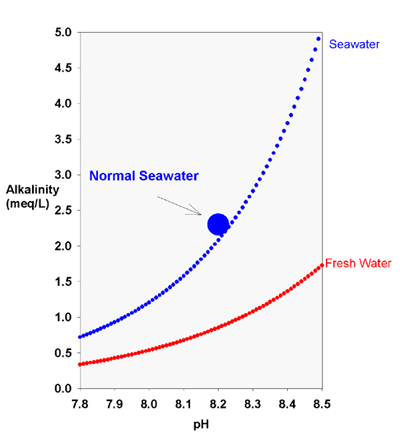For the biology and chemistry gurus that understand the relationship between PH, oxygen, Carbon Dioxide, Algaes, and the cycle of life I have a question.
Below is my chart for the last week of PH readings.The jump to 8.53 was this weekend, when I opened all the windows in our house. So, it skyrocketed. I'm not worried about the PH. From my understanding more oxygen equals good things for fish especially but coral calcification should also increase. Alk is steadily at 8 - 8.3, calcium stead at 450, magnesium is on the high side at 1520-1550. (IO salt - this batch seems high in MG. The base salt had an alk of 5 and ca of 350, I didn't check the mg of the new water, but assume that has to be where it's coming from.)
I also cleaned my skimmer pump for the first time in 18 months and my PH also jumped within 24 hours of cleaning it! It probably wasn't doing much!
What are the visible signs one should see in a mixed reef running at higher ph levels?
Will the higher ph affect algaes? diatoms? Cyano? Bryopsis, GHA?
I ask because I have an orange rust covered something covering several of my rocks. I can blow it off with a turkey baster, and within a day it's back. It's not a carpet like Cyano. It seems almost powdery. But it keeps coming back. Thought maybe Planaria, but, I have 4 wrasses, and It never shows up on my glass at night or during the day. It doesn't cover the sand bed at all. Just rocks. Only since my PH has increased. My algae turf scrubber even had the orangeish stuff mixed in with the gha that routinely grows on the scrubber.
Any other things I should be seeing with improved oxygenation?

Below is my chart for the last week of PH readings.The jump to 8.53 was this weekend, when I opened all the windows in our house. So, it skyrocketed. I'm not worried about the PH. From my understanding more oxygen equals good things for fish especially but coral calcification should also increase. Alk is steadily at 8 - 8.3, calcium stead at 450, magnesium is on the high side at 1520-1550. (IO salt - this batch seems high in MG. The base salt had an alk of 5 and ca of 350, I didn't check the mg of the new water, but assume that has to be where it's coming from.)
I also cleaned my skimmer pump for the first time in 18 months and my PH also jumped within 24 hours of cleaning it! It probably wasn't doing much!
What are the visible signs one should see in a mixed reef running at higher ph levels?
Will the higher ph affect algaes? diatoms? Cyano? Bryopsis, GHA?
I ask because I have an orange rust covered something covering several of my rocks. I can blow it off with a turkey baster, and within a day it's back. It's not a carpet like Cyano. It seems almost powdery. But it keeps coming back. Thought maybe Planaria, but, I have 4 wrasses, and It never shows up on my glass at night or during the day. It doesn't cover the sand bed at all. Just rocks. Only since my PH has increased. My algae turf scrubber even had the orangeish stuff mixed in with the gha that routinely grows on the scrubber.
Any other things I should be seeing with improved oxygenation?
















